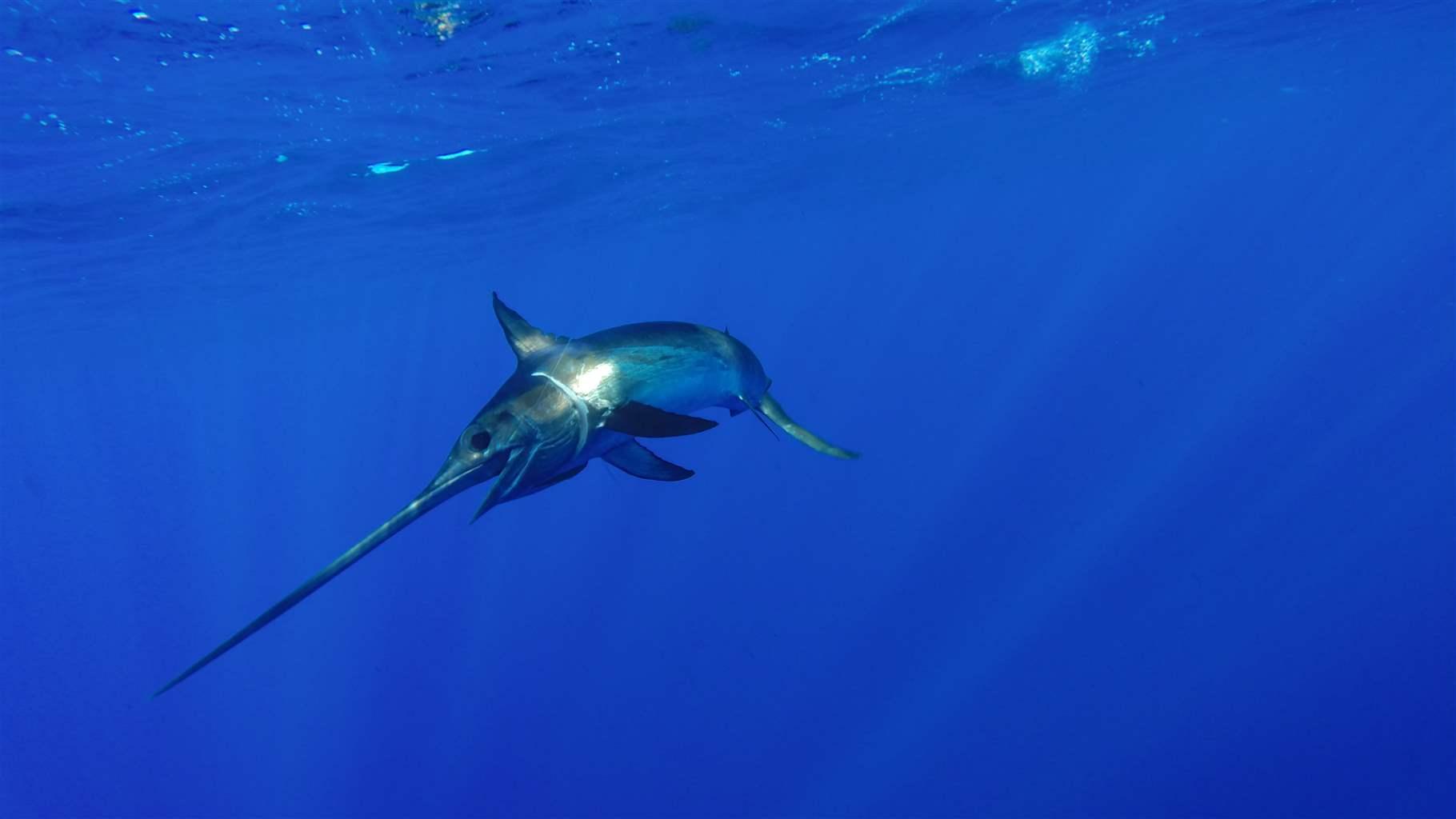8 mai 2024

In the world of fisheries management, certain moments stand out as pivotal — opportunities to redefine our approach to ocean stewardship and secure a more sustainable and biodiverse marine environment. The upcoming Indian Ocean Tuna Commission (IOTC) meetings in Bangkok, Thailand, are poised to be one such moment, with the opportunity to set precedents for the management of swordfish and skipjack tuna fisheries, as well as lay the groundwork for locking in a sustainable future for sharks. Management procedures (MPs), also known as harvest strategies, are at the heart of each of these potential advancements.
Swordfish Management: A Pioneering Move
The IOTC’s anticipated adoption of an MP for swordfish would be a significant breakthrough, representing three “firsts.” If the Australian proposal passes, the MP will set the first-ever catch limit for swordfish in the Indian Ocean, starting in 2026. It would also be the first MP adopted for swordfish worldwide and the first MP for any non-tuna species managed by one of the five tuna Regional Fisheries Management Organizations (RFMO).
This initiative recognizes the critical importance of comprehensive MPs in managing the complexities and uncertainties of marine fisheries. Given the healthy status of the swordfish population in the Indian Ocean, it emphasizes the value of implementing an MP while fish stocks are still at target levels. As such, it is crucial for the IOTC to adopt the MP for swordfish without delay to ensure the continued vitality and sustainability of this resource.
Sustainable Management for Skipjack Tuna
IOTC has faced challenges in effectively managing skipjack tuna fisheries. Since adopting a harvest control rule (HCR) in 2016, annual catch limits have been consistently surpassed. A key roadblock has been the difficulty in agreeing on catch allocation among member states. To improve the scientific basis for management, the European Union has proposed an MP that builds upon and upgrades the current HCR to a fully specified MP, offering a comprehensive and transparent approach to managing skipjack tuna.
The proposed MP outlines the management objectives, the decision rule for calculating the total allowable catch (TAC), and the process for handling exceptional circumstances – rare and unforeseen events that the MP is not designed to manage.
IOTC should adopt an MP for skipjack tuna, requiring a 70% likelihood that the fishery’s status will align with management objectives to ensure the stock is neither overfished nor subject to overfishing, important since skipjack plays such a vital role in the marine ecosystem as both predator and prey.
Once implemented, a fully specified MP will combine meticulous scientific analysis with strategic policy enhancements to ensure the long-term viability of the skipjack tuna fishery.
Extending the Horizon to Sharks
In addition to the progress anticipated for swordfish and skipjack, Maldives and Pakistan have submitted a proposal to broaden the IOTC’s management of sharks. The proposal calls for the development of reference points for priority shark species, key elements that contribute to creating an MP in the future. It also specifically calls for a TAC for blue sharks, which can be most effectively set by an MP. This proposal also highlights apex predators’ vital role in marine ecosystems and their vulnerability to overexploitation—a move that underscores the species’ ecological significance and susceptibility to overfishing.
Widening IOTC’s scope by adopting this proposal would usher in several promising developments. It marks the continued progression of implementing specific actions designed to secure shark populations’ future health and sustainability. It sets the stage for an expanded application of MPs to sharks and other non-target species. It also creates an opportunity to craft comprehensive MPs that reflect the complex interplay among marine species and their roles within their ecosystems.
Looking Forward
As we look forward to the critical discussions at the IOTC meetings, it’s important to note the significant role played by the 8th Session of the Technical Committee on Management Procedures (TCMP), which is scheduled to meet on May 10-11, just before the main annual meeting on May 13-17. The TCMP will evaluate and recommend the final set of candidate MPs for swordfish and skipjack tuna, serving as an essential science-management dialogue forum. This moment is historically significant, marking possibly the first instance where a tuna RFMO is set to adopt two separate MPs within the same meeting—one for swordfish and another for skipjack tuna.
The push for these advancements is bolstered by support from a wide spectrum of organizations and stakeholders, highlighting a consensus around the urgency and necessity of advancing MPs. Institutions such as The Pew Charitable Trusts, the World Wide Fund for Nature (WWF), the International Seafood Sustainability Foundation (ISSF), Bumblebee Foods, Europêche, and the NGO Tuna Forum—have all signaled their backing, underlining the collective priority within the IOTC framework to progress MPs.
As stakeholders convene in Bangkok, we advocate for IOTC members to grasp this opportunity and commit to implementing comprehensive management approaches for these key species. Such action would affirm their commitment to maintaining robust and productive fisheries for the future.